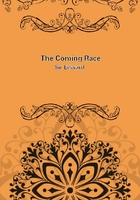
第37章
"We find, by referring to the great masterpieces in that department of literature which we all still read with pleasure, but of which none would tolerate imitations, that they consist in the portraiture of passions which we no longer experience- ambition, vengeance, unhallowed love, the thirst for warlike renown, and suchlike. The old poets lived in an atmosphere impregnated with these passions, and felt vividly what they expressed glowingly. No one can express such passions now, for no one can feel them, or meet with any sympathy in his readers if he did. Again, the old poetry has a main element in its dissection of those complex mysteries of human character which conduce to abnormal vices and crimes, or lead to signal and extraordinary virtues.But our society, having got rid oftemptations to any prominent vices and crimes, has necessarily rendered the moral average so equal, that there are no very salient virtues. Without its ancient food of strong passions, vast crimes, heroic excellences, poetry therefore is, if not actually starved to death, reduced to a very meagre diet. There is still the poetry of deion- deion of rocks, and trees, and waters, and common household life; and our young Gy-ei weave much of this insipid kind of composition into their love verses." 86 "Such poetry," said I, "might surely be made very charming; and we have critics amongst us who consider it a higher kind than that which depicts the crimes, or analyses the passions, of man. At all events, poetry of the inspired kind you mention is a poetry that nowadays commands more readers than any other among the people I have left above ground.""Possibly; but then I suppose the writers take great pains with the language they employ, and devote themselves to the culture and polish of words and rhythms of an art?""Certainly they do: all great poets do that. Though the gift of poetry may be inborn, the gift requires as much care to make it available as a block of metal does to be made into one of your engines.""And doubtless your poets have some incentive to bestow all those pains upon such verbal prettinesses?""Well, I presume their instinct of song would make them sing as the bird does; but to cultivate the song into verbal or artificial prettiness, probably does need an inducement from without, and our poets find it in the love of fame- perhaps, now and then, in the want of money.""Precisely so. But in our society we attach fame to nothing which man, in that moment of his duration which is called 'life,' can perform. We should soon lose that equality which constitutes the felicitous essence of our commonwealth if we selected any individual for pre-eminent praise: pre-eminent praise would confer pre-eminent power, and the moment it were given, evil passions, now dormant, would awake: other men would immediately covet praise, then would arise envy, and with envy hate, and with hate calumny and persecution. Our history tells us that most of the poets and most of the writers who, in the old time, were favoured with thegreatest praise, were also assailed by the greatest vituperation, and even, on the whole, 87rendered very unhappy, partly by the attacks of jealous rivals, partly by the diseased mental constitution which an acquired sensitiveness to praise and to blame tends to engender. As for the stimulus of want; in the first place, no man in our community knows the goad of poverty; and, secondly, if he did, almost every occupation would be more lucrative than writing.